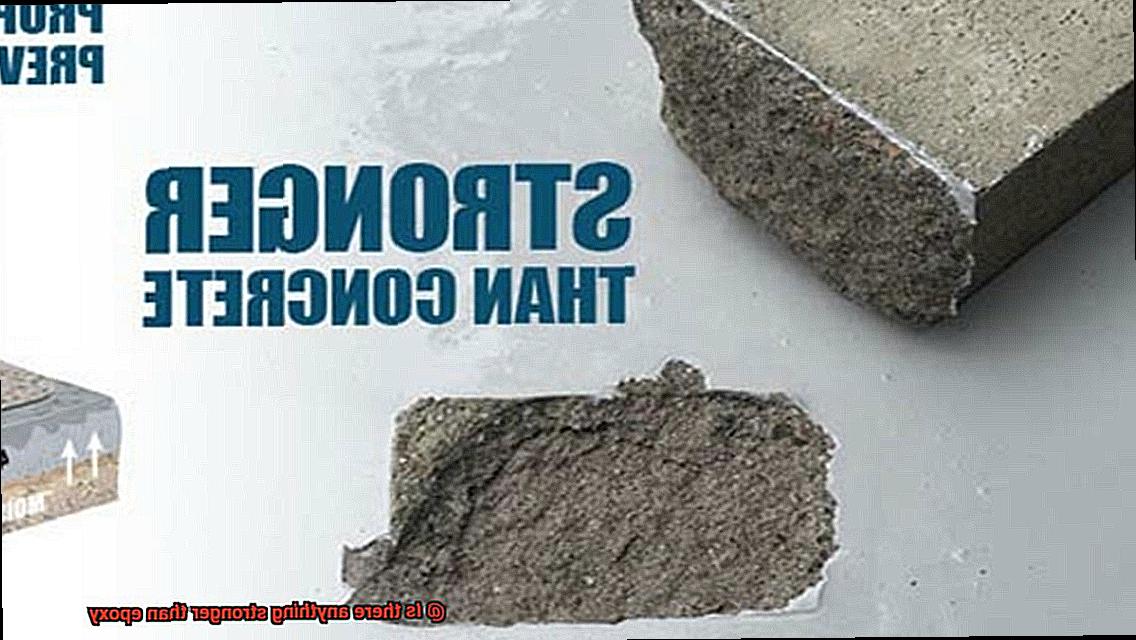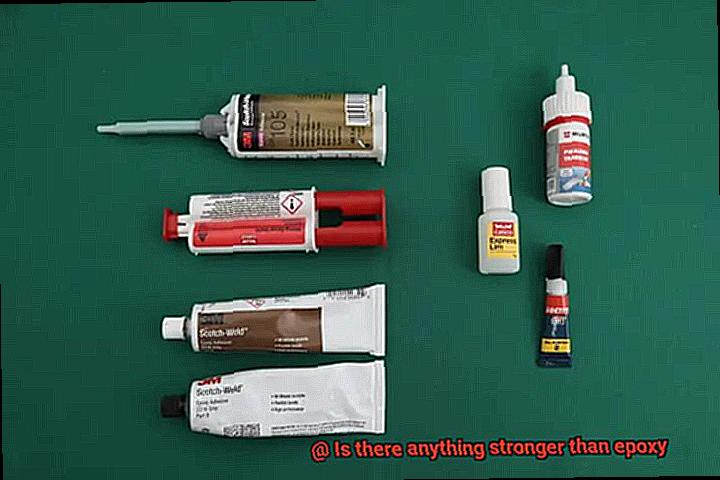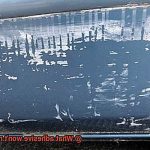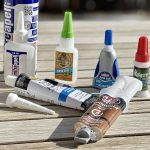As an expert in the industrial field, I am frequently asked about the most robust adhesive for a long-lasting bond. My response is always the same – “Epoxy.” This versatile adhesive can bond resin-based materials and other substrates like metal, ceramic, wood, and even some plastics. It creates bonds that are stronger and more durable than any other adhesive on the market. Whether you’re fixing a leaky pipe or building a spaceship, epoxy is your go-to choice.
But then comes the million-dollar question – is there anything stronger than epoxy? It’s a fascinating inquiry that takes us deep into the world of adhesives. The answer isn’t as simple as it seems because it depends on several factors. Epoxy is a two-part mixture consisting of resin and hardener that undergoes a chemical reaction to create an unbreakable bond. While it’s undoubtedly one of the most powerful adhesives available, there are others out there that can be even stronger and more enduring than epoxy under specific circumstances.
So what are these adhesives, and how do they compare to epoxy? In this blog post, we’ll explore the world of adhesives and answer the burning question – “Is there anything stronger than epoxy?” We’ll examine various adhesives that are considered mightier than epoxy in specific situations and explain why. So sit back, relax, and let’s dive headfirst into this captivating world of adhesives.
What is Epoxy?
Contents
Epoxy is the ultimate adhesive that has gained popularity for its incredible strength and durability. It has become a go-to choice for many different applications, from woodworking to aerospace engineering. Epoxy is a type of adhesive that comprises two components: resin and hardener. When these two components are mixed together, they undergo a chemical reaction that creates an exceptionally strong bond between two surfaces.
One of the key characteristics of epoxy is its ability to resist water and chemicals, making it ideal for use in environments where high levels of moisture and exposure to chemicals are present. Moreover, epoxy can withstand high temperatures, making it suitable for use in applications such as aerospace and automotive industries.
There are different formulations of epoxy available to suit various applications. Some epoxies are designed for specific materials like metal or wood, while others are versatile enough to be used on a variety of surfaces. Clear epoxy is another popular type of epoxy that dries clear, making it ideal for use on surfaces that need to remain transparent.
Once mixed, epoxy starts to cure and harden, creating a strong bond between two surfaces that can withstand high levels of stress and strain. The curing process can take anywhere from a few minutes to several hours, depending on the specific formulation.
While epoxy is one of the strongest adhesives available in the market, there are other options available that can be stronger depending on the intended application. Polyurethane glue and cyanoacrylate glue are both excellent alternatives to epoxy and should be considered when looking for a stronger adhesive.
Polyurethane glue creates a strong chemical bond by expanding and filling gaps in materials, making it an excellent choice for woodworking projects and repairs. It is also waterproof and heat-resistant, making it suitable for outdoor applications.
Cyanoacrylate glue forms an almost instant bond between materials and can be used on various surfaces like metal, plastic, and wood. Additionally, it has excellent tensile strength and can withstand impacts and vibrations.
What are the Advantages of Epoxy?
Epoxy is a game-changer when it comes to bonding materials. As an adhesive expert, I am confident in saying that its unique properties have made it a popular choice for various applications. What sets epoxy apart from other adhesives are its advantages that include versatility, chemical and water resistance, and high-temperature tolerance.
One of the most notable benefits of using epoxy is its versatility. It can bond to a wide range of surfaces such as metal, wood, concrete, and plastic. This makes it an ideal adhesive for various projects, whether you’re repairing an automotive part or building a structure with multiple materials.
Epoxy’s resistance to chemicals and water is another advantage worth mentioning. It can withstand harsh chemicals such as acids, alkalies, and solvents without breaking down or degrading. Additionally, its excellent water resistance makes it perfect for use in wet environments or areas exposed to moisture.
Moreover, epoxy can handle high temperatures with ease. This makes it an ideal adhesive for use in applications where heat is a factor, such as in electronics or aerospace manufacturing.
To sum up, here are some sub-topics that highlight the benefits of using epoxy:
- Versatile: Epoxy can bond to a wide range of surfaces, making it ideal for various applications.
- Chemical Resistance: Epoxy can resist most chemicals including acids, alkalies, and solvents.
- Water Resistance: Epoxy can withstand exposure to moisture and wet environments.
- High-Temperature Resistance: Epoxy can handle high temperatures with ease.

Are There Any Alternatives to Epoxy?
Epoxy is the superstar of industrial strength adhesives, renowned for its remarkable bonding strength, water-resistance, and high-temperature tolerance. However, it’s not always the best choice for every situation. So, what are the alternatives to epoxy that could come in handy?
The first alternative is polyurethane adhesive, which has a stronger initial bond than epoxy and can withstand more stress and strain. This makes it ideal for applications with a lot of movement or stress on the bonded surfaces. Additionally, it’s flexible and resistant to moisture and chemicals, making it perfect for outdoor or marine environments.
Cyanoacrylate adhesive, also known as super glue, is another option. While it may not have the same strength as epoxy or polyurethane, cyanoacrylate has an incredibly fast bonding time. This makes it perfect for small repairs or projects that require swift action. It’s also water-resistant and can be used on a variety of surfaces.
Silicone adhesive is the third alternative to epoxy. Silicone is known for its flexibility and heat resistance, making it ideal for high-temperature applications. It’s also great for use in automotive and marine applications due to its excellent water resistance. However, silicone adhesive doesn’t have the same initial bonding strength as epoxy or polyurethane, so it may take longer to cure.
When choosing an adhesive, consider factors such as bonding strength, flexibility, water resistance, and curing time. Ultimately, the choice between epoxy and its alternatives depends on your specific needs. Polyurethane may be the way to go if you require an adhesive that can handle a lot of stress and strain. If you need something that bonds quickly, cyanoacrylate might be your best bet. And if you’re looking for an adhesive that can withstand high temperatures, silicone could be the answer.
Polyurethane Glue: An Alternative to Epoxy
This alternative to epoxy has been gaining popularity due to its strength and versatility.
Unlike epoxy, polyurethane glue doesn’t require mixing, making it a breeze to use for small projects or repairs. It’s a versatile adhesive that can bond a variety of materials, including wood, metal, plastic, and even glass.
One of the key advantages of polyurethane glue over epoxy is its ability to expand and fill gaps during the curing process. This makes it ideal for projects where there may be slight imperfections or gaps in the materials being bonded. The expansion also creates a strong mechanical bond between the materials, increasing the overall strength of the bond.
Polyurethane glue also has a longer working time compared to epoxy, allowing for more flexibility during the bonding process. However, it does take longer to cure than epoxy, typically taking 24-48 hours to fully cure compared to epoxy’s 6-24 hour curing time.
When it comes to strength, polyurethane glue can be just as strong or even stronger than epoxy depending on the specific application and materials being bonded. In certain tests, it has been shown to have higher tensile strength and impact resistance than epoxy.
Cyanoacrylate Glue: Another Alternative to Epoxy
Look no further than cyanoacrylate glue, also known as super glue. This two-part adhesive offers significant strengths and versatility that make it an appealing choice for various applications.
Firstly, cyanoacrylate glue is incredibly strong, with the ability to withstand high levels of stress and strain. This makes it perfect for heavy-duty applications such as construction and automotive repair. Unlike epoxy, this glue sets quickly, allowing you to finish your project in no time. Moreover, it is compatible with various materials like metal, plastic, ceramic, and wood.
Secondly, cyanoacrylate glue is versatile and comes in different viscosities and formulas. This feature allows you to select the best type of glue for your specific needs. Whether you are working on DIY projects or repairs around the house, cyanoacrylate glue is easy to use and provides dependable results.
However, there are some potential downsides to using cyanoacrylate glue. For example, it may become brittle when exposed to extreme temperatures, making it less flexible than epoxy. Additionally, once the glue has set, it can be challenging to remove if you make a mistake during application.
Other Adhesives That Can Be Stronger Than Epoxy
When it comes to bonding materials, epoxy is often the first adhesive that comes to mind for its strength and durability. However, there are other adhesives that may be even stronger in certain applications. As an expert in this field, I am thrilled to share some of my knowledge with you.
First on the list is cyanoacrylate, otherwise known as super glue. This adhesive forms an incredibly strong bond very quickly and can be used on a variety of materials including metal, plastic, and ceramic. However, it’s important to note that it may not be as effective on porous surfaces or those with a lot of flex or movement. Super glue is perfect for quick and strong fixes.
Polyurethane is another strong adhesive option that can create a bond stronger than the materials being joined. It forms a chemical reaction when mixed with water and is particularly useful for bonding wood. It can also be used on other materials like metal and plastic. Polyurethane is known for its strength and resistance to environmental factors.
Acrylic adhesives are perhaps one of the most versatile adhesives available. They have the ability to bond to a wide range of materials, making them ideal for use in industries like automotive and aerospace where they must withstand extreme temperatures and stress. Acrylic adhesives are also resistant to environmental factors like humidity.
Lastly, structural adhesives such as epoxy modified acrylics and methacrylates are designed specifically for high-stress applications. These adhesives can bond materials such as metals, plastics, and composites and provide a strong, durable bond even in harsh conditions. They are ideal for heavy-duty projects that require a long-lasting bond.
How to Choose the Right Adhesive for Your Project
Adhesives are essential in any project that involves bonding materials together. However, choosing the right adhesive can be a daunting task, especially if you’re not familiar with the different types of adhesives available. To help you out, we’ve compiled a comprehensive guide to choosing the right adhesive for your project. Here are the five important factors to consider:
Material Compatibility
The first factor to consider is the type of materials you’ll be bonding together. Some adhesives work better with certain materials than others, so it’s important to choose an adhesive that is compatible with the materials you’ll be using.
For example, if you’re bonding metal and plastic, you may need an adhesive that can bond both materials effectively.
Strength Requirements
The next factor to consider is the strength requirements of your project. Epoxy is known for its strong bond, but there are other adhesives that may be stronger depending on the application.
Polyurethane adhesives, for instance, are known for their high-strength bond and can be a good choice for projects that require a very strong bond.
Other Properties
Aside from strength, you may also want to consider other properties such as flexibility or heat resistance. For instance, if you’re bonding materials that will be exposed to high temperatures, you may need an adhesive that is heat resistant.
On the other hand, if your project requires some degree of flexibility in the bonded materials, structural adhesives like acrylics and methacrylates can offer high strength bonds while allowing movement.
Environmental Factors
Environmental factors are also important when choosing an adhesive. If your project will be exposed to water or chemicals, you’ll need an adhesive that is resistant to these elements. Additionally, if your project will be exposed to outdoor elements like UV rays or extreme temperatures, you’ll need an adhesive that can withstand these conditions.
Application Method
Finally, consider how you’ll be applying the adhesive. Some adhesives require special tools or equipment, while others can be applied easily by hand. For instance, super glue (cyanoacrylate) bonds quickly and securely to a variety of surfaces, making it a great choice for small projects that require quick bonding.
XObmZIbHOzY” >
Conclusion
To sum up, epoxy is a formidable adhesive that can endure various environmental factors and bond with different surfaces. However, it’s not always the strongest option for every project.
Polyurethane glue expands and fills gaps during curing, providing a sturdy mechanical bond between materials. Meanwhile, cyanoacrylate glue sets rapidly and can handle high levels of stress and strain. Acrylic adhesives are versatile and can bond to multiple materials, while structural adhesives like epoxy modified acrylics offer long-lasting bonds even in harsh conditions.
When selecting an adhesive for your project, consider material compatibility, strength requirements, flexibility or heat resistance, exposure to water or chemicals, and application method.
Ultimately, the choice between epoxy and its alternatives depends on your specific needs. As an expert in this field, I recommend exploring different options to find the ideal adhesive for your project.






